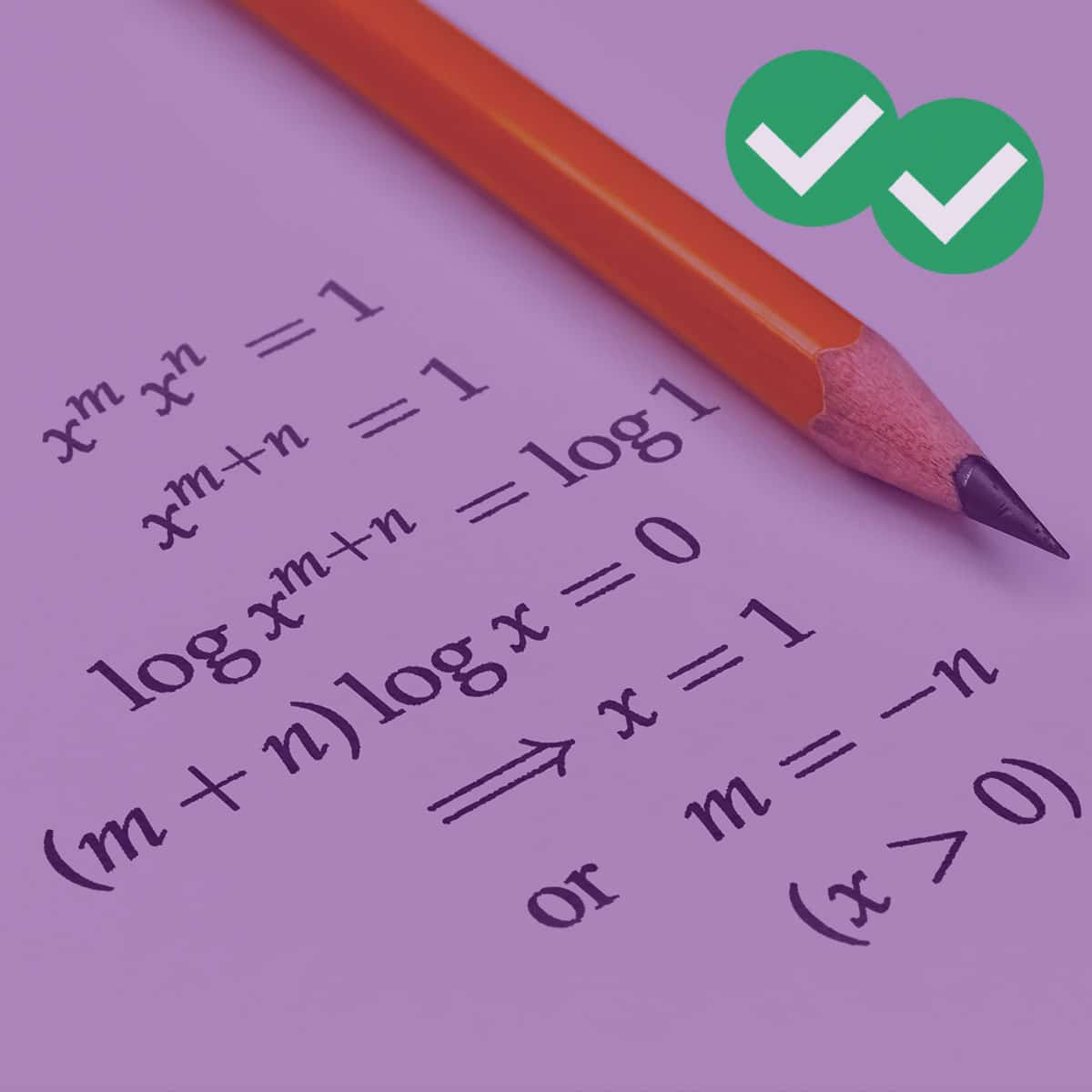The GRE math sections each contain 20 questions. You are given 35 minutes for each section, which works out to 1:45 seconds per question. Below are some helpful GRE math tips to help you wisely use these 35 minutes.
Go for the low-hanging fruit
Each question in the GRE quantitative section is worth the same number of points. That is such an important point that I am going to repeat it again (in caps): EACH QUESTION ON THE GRE SECTION IS WORTH THE SAME NUMBER OF POINTS.
That’s right folks. If ETS sits there and devised a question such as the following:

The five minutes you’d take to (maybe) answer the question correctly will yield the exact same number of points as this question:
If  , what is the value of x?
, what is the value of x?
So what’s the takeaway from this? (Besides factorials scare the living <expletive> out of me!)
Well, why waste time on a very difficult question when you can simply scroll to an easier question. Think of it this way: in 35 minutes you want to score as many points as you can, and each question is worth the same.
If I paid you 1,000 dollars for every apple you picked from a tree in 35 minutes, what would you do? You would go for the low hanging fruit. You would not waste your time climbing to the very top of the tree to pluck an apple that is worth the same number as an apple that you can simply reach out and grab with both your feet planted on the ground.
Of course after a certain point—that is to get a high score—you must grab the fruit up on high, and go for the difficult questions. But make you’ve answered the easy ones first.
How much time should I budget per question?
The answer differs depending on how difficult the question is. Think of it this way. There are easy questions, medium questions, and difficult questions. Easy questions should take between 45 seconds and 1 minute. Medium questions should take between 1:00 – 2:00. And difficult questions should not take longer than 3 minutes. The ratio of easy, medium, and difficult questions vary per section but in general you can expect to see a smattering of each. On the easy section the ratio will skew towards easy; in the difficult section that ratio will skew towards difficult.
Learning to let a question go
If you are staring at a question and have been unable to devise a solution after a minute, you should seriously consider moving on to the next question. Again, keep the low-hanging fruit metaphor in mind.
If, however, you are dealing with a difficult math question (and it is clear that it is difficult), then take a couple of minutes, as some questions will clearly take that much time. That is do not freak out on a question that is clearly convoluted just because you’ve taken 2 minutes. As long as you are headed toward the solution, persevere.
Do not be sloppy but do not obsess over easy questions
Using the time schematic above, we can see that easy questions can take less than a minute. It is important to answer these questions confidently and move on. If you dither, then that is time that could be spent on a more difficult question. However, do not race through an easy question, because than it defeats my whole low-hanging fruit sermon—missing a question that you could easily have answered correctly had you spent that extra second does not make sense (especially if you are racing towards difficult questions that you may not even answer correctly in the first place).
Make sure you guess
You do not even have to approach every question on the GRE exam, especially the difficult ones, as I mentioned above. But make sure at the very end that you guess, because there is no penalty for guessing. So randomly give yourself enough time at the end to bubble in every question. A little bit of luck can go a long way! (assuming you know how to study for the math section!)






Leave a Reply